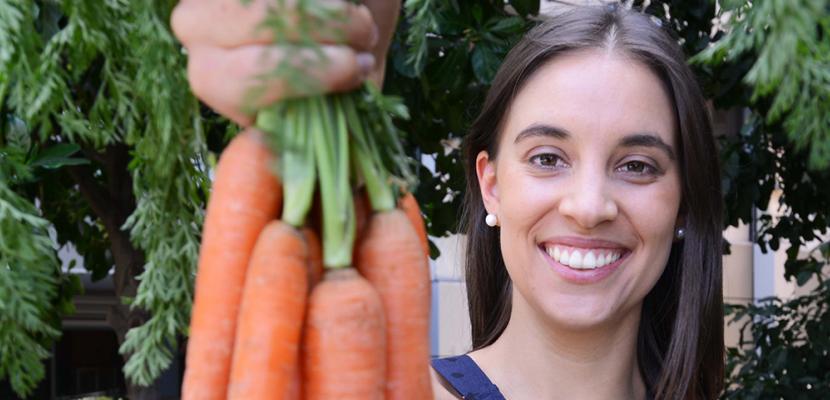
In the world of health and wellness, diets and healthy eating are always a hot topic. But with the rise of Instagram influencers and tabloid and celebrity unsolicited diet advice, ineffective fads and misinformation is rife.
When everyone has an opinion, it’s never been more important to listen to the experts, like Dr Hannah Mayr.
Assistant Professor of Nutrition and Dietetic Practice Dr Hannah Mayr has had a special interest in healthy diets, particularly the Mediterranean diet (also known as the MedDiet) since she started her research into nutrition and dietetics.
So, what is the MedDiet?
“The MedDiet includes a focus on foods high in vitamins, minerals, healthy fats and antioxidants,” explains Dr Mayr.
“This includes extra virgin olive oil, fruits, vegetables (especially leafy greens, tomatoes, garlic and onion), nuts, legumes, wholegrains and fish, and a reduction in red meat and processed foods."
In her research, Dr Mayr found dietary advice to patients is often inconsistent, and that many clinicians lack a deep understanding of what the MedDiet is, and the evidence that supports it.
The research, in a nutshell
As part of her PhD, Dr Mayr investigated the effects of following a MedDiet for people who had previously had a heart attack. In the ‘AUSMED Heart Trial’, 65 participants were divided into two groups and followed either a MedDiet, or a low fat, general healthy eating diet, for six months.
“Participants who followed the MedDiet significantly reduced their waist circumference and improved in the ‘Diet Inflammatory Index’ – which means they improved the potential of their diet to be anti-inflammatory,” says Dr Mayr.
“The low fat diet group, who hardly changed their diet at all, was shown to be less effective, and some participants also reported the low fat diet to be harder to follow.”
A key principle of the MedDiet is the liberal use of extra virgin olive oil (also known as EVOO), Dr Mayr has been involved in the OLIVAUS trial since 2017 investigating the effects of EVOO on risk markers of heart disease in healthy adults. The research team, supported by the Biochemistry Team of scientists at the Faculty of Health Sciences and Medicine, just published their first outcomes, which found the daily intake of three tablespoons of EVOO reduced systolic blood pressure in just 3 weeks.
Maintaining momentum
For her PhD findings, Dr Mayr was awarded the Dietitians Australia Early Career Researcher Award and is currently leading research that will translate scientific evidence supporting the MedDiet into real-world practice.
While it typically takes a long time for findings from controlled research studies to be translated into healthcare, Dr Mayr is passionate about ensuring the MedDiet is better integrated into healthcare when managing people with chronic diseases in Australia, particularly those with heart disease and diabetes.
The next step for Dr Mayr and her team is to develop interventions and resources, assisting clinicians integrating the principles of a MedDiet into practice.
About Dr Hannah Mayr
Dr Hannah Mayr is an Assistant Professor in the Master of Nutrition and Dietetic Practice and a member of the Bond University Nutrition and Dietetics Research Group. Hannah is also a clinical research dietitian at the Princess Alexandra Hospital in Brisbane.
Master of Nutrition and Dietetic Practice
Find out more about Nutrition and Dietetics at Bond University.